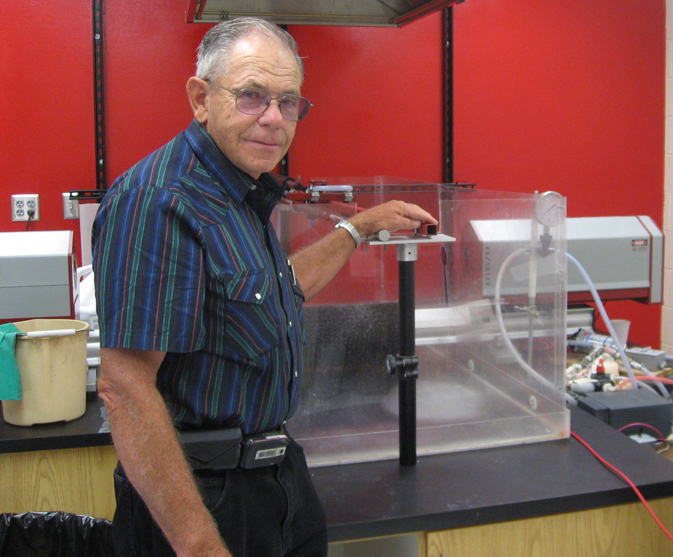
Experience on the family farm helped inspire Bob Klein into a career of community service.
Growing up near David City, the ebb and flow of farm chores interested Klein in the details of growing crops and raising livestock. He was an active member of 4-H and remembers showing livestock at local events, including Aksarben and the Nebraska State Fair.
"I did all those good farm things," said Klein. "Through those activities, I got to know quite a few people who were Extension agents - as they were called back then.
"To me, what those people did looked to be an appealing job, a good possibility to explore."
Enrolling at the University of Nebraska in the late-1950s, Klein took classes that led to him joining UNL Extension. Between his junior and senior years in 1959, Klein participated in training to become an Extension agent/educator. He graduated in 1960 and took his first Extension job in June of the same year, in Dodge County.
This year, Klein is celebrating 50 years with UNL Extension. He will receive an award for his dedication during UNL's Employee Service Awards ceremony, 10:30 a.m., Sept. 9 at the Lied Center for Performing Arts.
"I truly felt like I made the right decision in joining UNL Extension," said Klein. "I've always had great support from the university. And the people I've worked with - farmers, producers, bankers and coworkers - have been great.
"I've had a lot of good job offers through the years, but I'm glad I stayed."
During his career, Klein said he has watched farming transition from some producers using horse-drawn threshing machines to today's massive diesel-powered tractors.
Along with his first job in Dodge County, Klein also worked for UNL Extension in Red Willow County (McCook) and at the West Central Research and Extension Center in North Platte. He worked for 19 years in McCook, advancing to agent chairman. Currently, he is a western Nebraska crop specialist. His duties include monitoring more than 1,700 acres of crop operations, including a water test area near Brule.
Overall, Klein is most proud of UNL Extension's efforts to educate farmers on stewardship issues - including improving pesticide application methods, the introduction of no-till farming and formulating more efficient irrigation practices.
A large part of his career has been teaching producers about conservation tillage and maintaining crop residue to reduce erosion and increase water retention in soil.
"You could say my growing up experience really shaped my career," said Klein.
He points to two years in particular, a very dry spell that spanned the 1955 and 1956 growing seasons.
"I remember things drying up around David City," said Klein. "We still went out to plow and disc the crops. Now we know all that did was dry the soil out more."
Those dust-filled days fueled his work on an ecofallow program in the 1970s that recommended a rotation of winter wheat and corn in fields. The program was designed to better retain moisture in fields by keeping wheat stalks in ground rather than plowing them under. An application of pesticides over the stalks helped control weed growth, and when corn was planted, the plants benefited from the moisture retained in the soil.
"Getting producers to adapt new techniques is a slow process that takes a lot of work," said Klein. "Producers recognize the value of good stewardship. If you can show them how it will benefit their operation and the environment, then they're quick to listen."
Klein, who is 72, is working half time at the West Central Research and Extension Center. In October he will transition to a quarter-time position, which will put him in charge of the water lab in Brule.
"The goal is to take the Brule area from a productive farm into a research lab," Klein said. "I'll be working on that and training people to take my place here."
When he does transition into full retirement, Klein said he's going to miss working with people in the community.
"Extension is all about working with the public," said Klein. "And, it's been the people I've worked with that made this job so interesting. They're the reason I've not minded showing up for work over the last 50 years."
- Troy Fedderson, University Communications